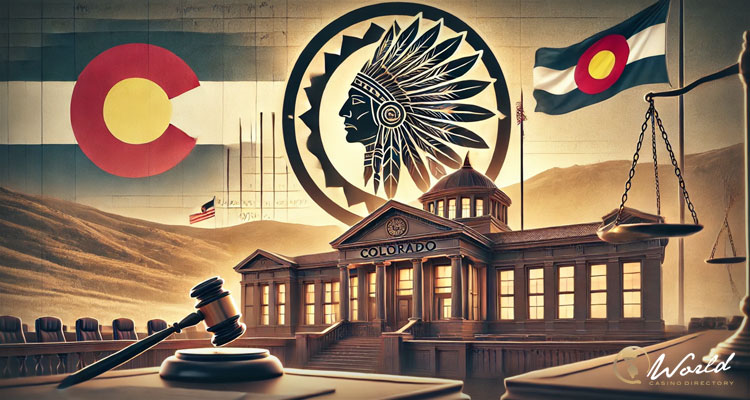Colorado’s legal battle with the Southern Ute and Ute Mountain Ute Tribes over sports betting regulation has intensified as the state filed a motion to dismiss the lawsuit brought by the tribes. The case, which centers on the tribes’ right to offer mobile sports betting outside their reservations, could set an important precedent for tribal gaming across the country. Filed in federal court earlier this summer, the lawsuit argues that the state improperly restricted the tribes’ entry into the sports betting industry, especially in terms of taxation and regulation of online bets.
The lawsuit, initiated by the Southern Ute Tribe and later joined by the Ute Mountain Utes, comes in the wake of Colorado’s 2019 legalization of online sports betting. The tribes contend that bets placed via their sportsbook by users located off-reservation should be treated as if they were placed on tribal lands and, as a result, should be exempt from Colorado’s sports betting taxes. The state, however, disputes this interpretation and has responded by asking the court to dismiss the case.
Sovereignty and Legal Immunity
In a 17-page court filing submitted on Tuesday, attorneys for Colorado argued that the lawsuit should be dismissed, citing several legal precedents. Central to their argument is that the named defendants, including Governor Jared Polis and Christopher Schroder, director of the Colorado Division of Gaming, are protected by the Eleventh Amendment, which grants states and state officials immunity from certain legal claims brought in federal court. The state pointed to a 1996 U.S. Supreme Court decision involving the Seminole Tribe of Florida, which extended Eleventh Amendment immunity to state officials in cases brought by tribal governments.
According to CPR News, the state also emphasized its sovereignty in regulating sports betting within its borders, stating, “As the Tribes argue that they have a sovereignty interest in their right to control gaming on Indian lands, so too does the State possess a sovereignty interest in the ability to regulate sports betting in Colorado.”
Additionally, Colorado‘s legal team asserted that the tribes’ claim fails to meet the necessary conditions for relief under the Indian Gaming Regulatory Act (IGRA), the federal law that governs tribal gaming operations. The state contends that the lawsuit doesn’t properly address the requirements for seeking relief under IGRA.
Statute of Limitations and Tax Disputes
Another significant argument made by the state in its motion to dismiss is that the tribes’ lawsuit falls outside of the statute of limitations. Colorado argues that, because IGRA does not specify a statute of limitations, state law should apply, which could potentially render the tribes’ filing untimely.
At the heart of the conflict is the issue of taxes. Colorado’s commercial sportsbooks are taxed at a 10% rate on gross gaming revenue, while the tribes argue that they should not be subject to state taxation for sports betting conducted off-reservation. This dispute echoes similar cases in other states, such as Arizona and Michigan, where tribes agreed to state taxation for off-reservation digital gambling. The Seminole Tribe in Florida, however, has struck a different deal, agreeing to make substantial payments to the state in exchange for exclusive rights to offer mobile sports betting.
The outcome of this lawsuit could have far-reaching consequences for tribal gaming across the United States, particularly in states that have yet to fully regulate online gambling. Should the court side with the Southern Utes, it may open the door for other tribes to assert their right to offer off-reservation mobile betting without state regulation. Indian Country, especially key tribal gaming states like California and Oklahoma, is closely watching this case. In states where negotiations with state governments have stalled, this lawsuit could provide tribes with new legal avenues to expand their gaming operations. However, the outcome remains uncertain, as Colorado has made a strong case for its sovereign right to regulate gaming within its borders.



